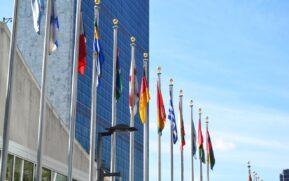
Doha, Qatar – A significant Israeli airstrike targeted residential buildings in Doha, the capital of Qatar, on September 9, 2025, striking locations housing members of Hamas' political bureau. The attack, which Israel claims was a precisely targeted operation against Hamas political leaders, has sent shockwaves across the region and led to widespread condemnation from Qatar and other international bodies. Qatar has vehemently denounced the strike as an act of "state terrorism" and a flagrant violation of international law, suspending its participation in ongoing ceasefire negotiations between Hamas and Israel.
The Israeli military stated that the strike was a "wholly independent" operation, with Prime Minister Benjamin Netanyahu taking full responsibility. However, the timing of the attack, occurring as Hamas leaders were reportedly reviewing a US-proposed ceasefire deal, has raised serious concerns about its impact on diplomatic efforts to end the war in Gaza. Hamas confirmed that its top leadership survived the attack, though reports indicate that five lower-ranking members and a Qatari security officer were among those killed. The White House confirmed it was notified by the US military prior to the strike, though Qatar has denied receiving advance warning, stating that a call from an American official came only as the explosions were occurring.
The brazenness of the attack on Qatari soil, a key US ally and home to the largest American military base in the Middle East, has amplified regional tensions. Analysts suggest that this action could undermine Qatar's crucial role as a mediator in the ongoing conflict and potentially disrupt broader regional stability. The strike also comes amidst Israel's stated plans for a ground invasion of Gaza City, a move that has already drawn significant international condemnation.
The diplomatic fallout from the strike has been immediate and severe. Qatar has suspended its involvement in the ceasefire negotiations, deepening Hamas' mistrust of both Israel and the United States. The attack has been widely condemned by governments across the Middle East, including Saudi Arabia and Egypt, with many calling for a firm Arab and international response. The United Nations Security Council is reportedly set to hold an emergency session to discuss the Israeli strikes on Qatar.
The implications of this strike extend beyond the immediate conflict, potentially impacting the region's travel and tourism sectors. While Qatar Airways and Hamad International Airport have stated their operations remain unaffected, the incident has created unease among stakeholders in the travel industry. The attack, described by some as an escalation that leaps over red lines, raises questions about the future of diplomatic mediation and the potential for further destabilization in an already volatile region.
77 People Are Viewing This News Right Now





